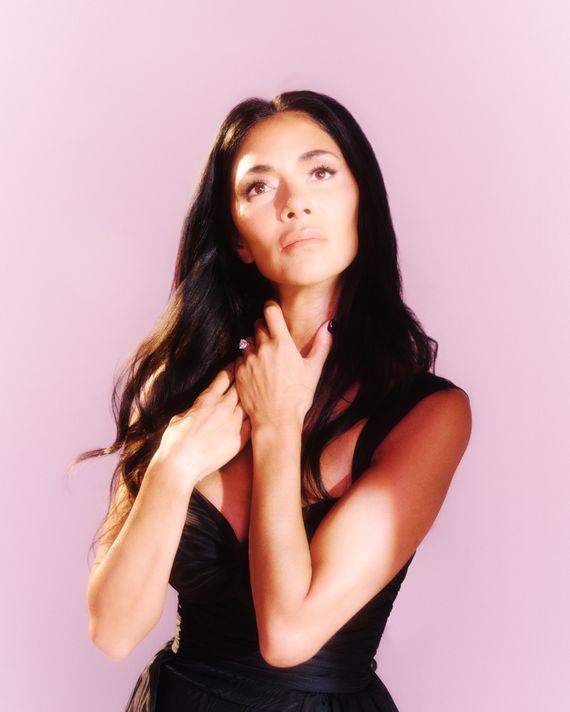
This article was originally published on August 28, 2024. We are republishing following Sunset Blvd.’s opening night at the St. James Theatre.
They wanted up-tempo,” Nicole Scherzinger purrs in the insulated register of a pop star preserving her voice, “so I’ll do a fun little set of the hits.” You may know the hits yourself: Scherzinger is best known as the lead singer of the Pussycat Dolls, the aughts girl group whose songs touch a certain age bracket in the amygdala and get them on the dance floor. You probably remember the bravado of “Don’t Cha,” which suggests the listener wishes “their girlfriend was hot like me,” or the aural striptease of “Buttons.” We are, at this moment, speeding down the FDR Drive in a black car on her way to a gig: a set under the Brooklyn Bridge at a Wimbledon watch party. A few days earlier, she was performing at a festival outside London. Even in a very short time talking to Scherzinger, you get the impression she is never at rest. Her mind is always on to the next thing, the next comeback.
We arrive at a makeshift dressing room in St. Ann’s Warehouse, and Scherzinger slips out of her poppy-red dress — deployed for a press appearance at the Empire State Building to promote this gig — and into a black sweat suit. She checks in with the sound engineers, requesting alterations to the mix and reworking the song order. She corrects her dancers’ choreography. She asks her strapping young Irish PA, Liam, to stand in the grass in front of the stage and record video of soundcheck on his iPhone. “I want to film it so we can watch it backwerds,” she says, slipping into the silly yet insistent voice of a teacher frustrated with a pupil, “and figure it out.” When she begins rehearsal with her version of “Jai Ho,” inspired by the song from Slumdog Millionaire, she doesn’t hold back. Her voice has the quality of a non-Newtonian fluid, slick and solid, silver as a wisp of smoke. It catches the attention of some of the event’s employees. “She sounds fucking incredible,” one tells another, who brags, in turn, that they saw her perform on the West End in Sunset Blvd., Andrew Lloyd Webber’s staging of the classic Billy Wilder film.
Sunset Blvd. is Scherzinger’s next comeback — or, as her character, Norma Desmond, might put it, her return to stardom. The pivot to musical theater, which earned her an Olivier Award this spring, is a closely held achievement for her. The Evening Standard said she “absolutely bloody smashes it,” while the New York Times called her performance “career-defining.” The production requires from Scherzinger an extreme level of exposure. She is onstage for almost the entire show, seven times a week. (On Broadway, the actress Mandy Gonzalez will perform on Scherzinger’s day off.) Some scenes occur in near-total darkness, and it all ends with her in a slip dress covered in blood. Sunset lands on Broadway this fall, and along with it comes the possibility of redefining how America sees Nicole Scherzinger. She could easily have a career touring the world, performing sets of the hits like many a pop star of her era. But Sunset is an acting and musical challenge that has transformed her, she says. She wouldn’t dare think of singing anything from the production in a setting like this. “It’s such a sacred thing we’ve created — visceral, raw … what’s the word? Unhinged,” she says with a hint of glee.
Director Jamie Lloyd admits casting Scherzinger was “an unusual proposition.” Norma (played by Gloria Swanson in the film) is a fading star of silent movies grasping at lost glory. Previously, she had been played by giants of the stage: Patti LuPone on the West End and Glenn Close in Los Angeles and on Broadway (instead of LuPone, in an infamous bit of 1990s theater drama). Scherzinger’s only major theatrical credit at that point was a revival of Cats. Among those initially confused was Scherzinger herself. When she pictured the film Sunset Boulevard, all she could think of was a scene in which Swanson’s hand rises in front of a projector in a menacing, witchlike claw before her prey: an aspiring screenwriter named Joe Gillis who stumbles into Norma’s mansion and ends up in a mutually parasitic relationship with her. She wants Joe to help fulfill her dreams of starring as Salome in a film based on a near-incomprehensible script she’s writing. In need of financial support, Joe leads Norma on both professionally and sexually. When she discovers he plans to leave her for another woman and never believed in the Salome project, Norma shoots him with a pistol and then, famously, descends her staircase toward the cameras of arriving reporters, believing she has returned to film stardom. Did Lloyd really want Scherzinger to play a washed-up crone?
She was won over, tentatively, by his promise of empathy for the character. Whereas previous productions leaned into the gothic horror — what Scherzinger describes as a man’s nightmare of an older woman — she was interested in seeing Norma as a wounded being. And as she thought about it more, she couldn’t deny there was something about the type she related to. Billed at that gig in Brooklyn as a “former Pussycat Doll,” Scherzinger has played a lot of roles in her time, from girl-group member to TV host, but never felt her talents had been fully utilized. As Lloyd sees it, she understood what it meant to be someone “who has been exceptionally famous but who has never been given the chance to show the world what she’s capable of doing.”
When casting any famous person in a role, there is always a question of whether the audience can forget the perception it has of the star’s persona and see just the character. The central notion of this Sunset is to do away with that duality, to blur where exactly Norma Desmond ends and Nicole Scherzinger begins. When Scherzinger first read the script, she was struck by a line from one of Norma’s solos in which she sings about how, in her early film career, “we gave the world new ways to dream.” Norma still longs to create art, even as her audiences have forgotten her. “I was like, This isn’t far off from my life,” she says. “I know what it’s like to be abandoned. I know what it’s like to feel deep loneliness.”
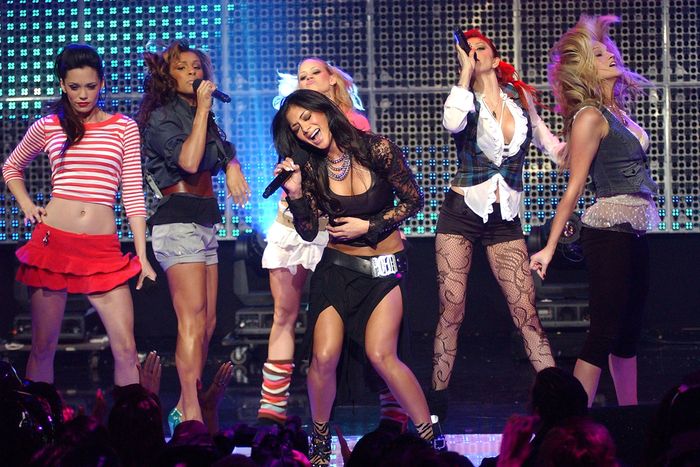
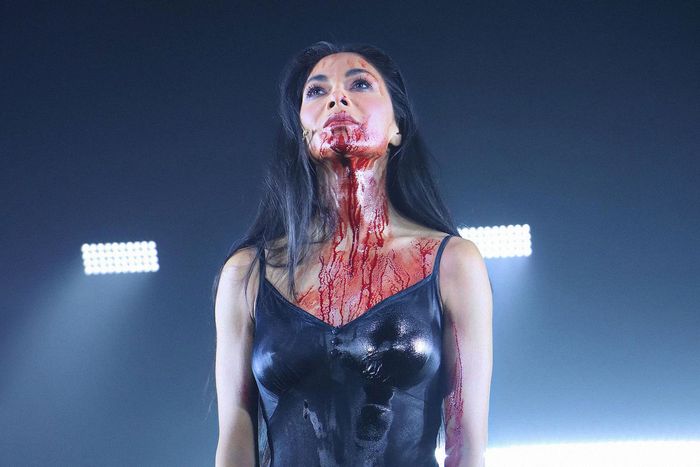
Before her performance in Brooklyn, Scherzinger met me for a long lunch at a midtown hotel in early June. She wore sunglasses and a thick white coat — she appears to be immune to humidity but vulnerable to air-conditioning — and a large gold crucifix hung around her neck. She can be earnest to the point of platitudes (her response to ageism, she says, is to rebrand herself as “agelicious”), liable to break out into song while describing a favorite melody, but also disarmingly wry. She’s wary of being misunderstood and prefers not to read her press coverage. “People pass judgment on me,” she says, because they may know her only from the girl groups. “I’ve lived a life. I’ve lived many lives. It’s prepared me for this role.”
Scherzinger was born in 1978 in Honolulu. Her mother, Rosemary, with whom Scherzinger is very close, is of native Hawaiian and Ukrainian ancestry, and her biological father, Alfonso, who is Filipino, left the family when she was 3 years old. “I didn’t know if I would remember that, but speaking to psychologists, they say from 3 to 8 is when you’re really shaping yourself, so I don’t think it helped,” Scherzinger says, carefully distilling her trauma into a joke. “I’ve taken that with me in my relationships, not setting boundaries because I’m afraid of people abandoning me.” Her mother then married Nicole’s German American stepfather, Gary, whose last name she uses now, and the family moved to Louisville, Kentucky, when she was 6.
The Scherzingers were lower-middle class. Gary worked as a welder, while Rosemary held various secretarial positions. Early on, Nicole heard Whitney Houston on television and grew obsessed with the idea of becoming a singer herself. Unable to afford private lessons, she created her own arts education: She decided to attend a middle school a 45-minute bus ride across town that would provide her with a route to enrolling in a performing-arts magnet high school. Surrounded by other theater kids, she found her people. She was soon cast as the lead in a production of Alice in Wonderland, and she remains grateful to her forward-thinking teacher for choosing her, “a little girl of my color,” over a blonde girl who was in the running.
At Wright State University in Ohio, Scherzinger found the students less welcoming than those in high school — partially, in her telling, because she was quickly getting cast in lead roles, like that of Velma Kelly in Chicago, over upper-classmen. She left the program after two years to tour as a backing vocalist with the Travis Meeks–led ’90s alt-rock band Days of the New. Traveling with a band brought its own culture shock. Scherzinger, whose grandfather is a Catholic archbishop, still regularly attends church services; she now found herself playing grungy clubs and being asked to sign fans’ boobs and tampons. “I was like, Excuse me, why are we not sitting down quietly taking in this art?” She brushes off the suggestion that it was something she couldn’t handle: “I got to be with amazing musicians on tour. It wasn’t too bad.”
That game attitude helped when Scherzinger’s life turned toward pop stardom. Her mother discovered a casting notice for a WB reality-competition TV series called Popstars, a precursor of shows like American Idol, which promised to audition women around the country and assemble them into the next big girl group. Then in her alt era, Scherzinger wasn’t interested in becoming a Spice Girl, but her mother insisted this could be her big break. So she drove overnight to Chicago, waited on a long line, and, in an audition that aired on television, belted “I Will Always Love You,” her eyes closed and her voice full out like her idol, Whitney, while wearing a cowboy hat. The performance landed her a place on the show, and eventually, with four other finalists, she became a member of her first girl group, the short-lived Eden’s Crush.
Scherzinger was 22 when she auditioned for Popstars. The group burned fast over a two-year run: a No. 8 hit (“Get Over Yourself”), a guest appearance on Sabrina the Teenage Witch, opening for ’N Sync and Jessica Simpson — all before their label, London-Sire, a byproduct of a music merger, dissolved in 2002. “When you’re working so much, it’s wonderful, but you’re still young and you’re still learning to be yourself,” Scherzinger says. In Sunset Boulevard, Norma, too, is said to have been in the prime of her career when she was a very young woman. “I really empathized with Norma—those were her impressionable years, and she’ll never get those back.” When you’re in it, the grind of fame puts you on an endless hunt for the next thing. Then “you look behind you, and those are ten years of your life gone, when you didn’t enjoy or love yourself.”
The year after Eden’s Crush disbanded, Scherzinger auditioned for the Pussycat Dolls. They had been a local Hollywood burlesque act, but their organizer, the choreographer Robin Antin, decided to repackage them into a girl group. “We looked at hundreds of girls and then Nicole came in and was staggeringly great in the room,” says the producer Ron Fair, who was tasked by Interscope Records with forming the group. Success came fast. The group’s first album, 2005’s PCD, went multiplatinum. They headlined world tours, sold tons of merchandise, and spawned their own reality-competition show. Behind the scenes, the schedule was strenuous, and Scherzinger, under pressure to maintain a certain weight, developed bulimia. “They worked us to the bone,” she remembers. Reportedly, there was tension among the group because Scherzinger was singing 95 percent of the vocals, according to her own estimate in a 2012 VH1 documentary, while the other Dolls were relegated primarily to dancing. (“People would assume that I was so mad at Nicole because she sang and I didn’t,” another member, Melody Thornton, told the Daily Mirror in 2019. “Well, no. I just wanted it for myself too. But it wasn’t Nicole’s fault.”) The group broke up in 2010 as various members, including Scherzinger, left to pursue solo careers.
If being a Pussycat Doll was a kind of performance of sexual freedom (Scherzinger calls the persona her “inner Sasha Fierce”), it was harder to define who she was playing when she was herself. “When you’re young, you’re like, Just give me a stage and let me perform,” Scherzinger says. “You don’t know how exactly to express yourself as an artist.” (It’s why, she adds, she had loved doing theater, where there was always the shield of the character.) She had tried to go solo even while the Dolls were together, but her attempts lacked a sense of definite identity. An album, tentatively titled Her Name Is Nicole, was shelved after its introductory singles failed to perform. A much-delayed first solo album, Killer Love, released in the U.K. in 2011, did well enough there but was not released in the States. She started to feel the music industry losing interest. “I’ve felt discarded and dismissed,” she says, adding that after she turned 30, she was told she was too old to be played on the radio and had difficulty securing auditions for roles even in animated films.
There’s a dynamic in the industry, satirized in the TV show Girls5eva (about a girl group planning its own comeback): Once someone signs up to judge a reality-competition show, the rest of their career falls by the wayside. There’s a degree of safety and continuity in the sanded-off edges of a televised talent show. Scherzinger, her career born of reality television, remade herself on it. She hosted The Sing-Off in 2009, won Dancing With the Stars in 2010, and judged the U.K. version of The X Factor between 2010 and 2017 — she was, in fact, the one who suggested assembling the members of One Direction together into a boy band (“I knew the power and influence of a group”). As a host, Scherzinger could play the eager theater kid to the likes of the intimidating Simon Cowell, throwing out neologisms like schamazing. And she could secure a hefty paycheck — in the realm of millions of pounds per season, if you believe the British tabloids. But those roles were not, as Scherzinger puts it, “a showcase for my God-given talents.”
While behind the judge’s desk, she continued to record, if not release, music, attempting to recapture the glory of the Pussycat Dolls — which led to a short-lived revival of the group itself. In 2020, she and members from the original iteration, minus Thornton, released a single, “React.” An accompanying tour was delayed by the pandemic and then, in 2022, to the professed surprise of the other members, Scherzinger announced it was canceled. Amid the fallout, Antin sued Scherzinger, claiming she was demanding a larger-than-negotiated majority share of the group’s business, while Scherzinger countersued, arguing that Antin had spent the funds for the tour “through self-dealing, waste and fraud.” The case is still working its way through the courts, but Scherzinger is, somehow, ever sanguine about the possibility of a resolution: “I know Robin realizes that was a mistake, and I have confidence we’re working it out.”
Around the same time, Scherzinger funded her own showcase, inviting producers in London, New York, and Los Angeles to see her perform musical-theater standards in the hopes of booking more work in that area. I ask if she pivoted to theater because the Dolls reunion had fallen apart. Scherzinger bristles at the suggestion: “I didn’t see it as competing. I was doing it all.” She says she prefers to have many irons in the fire. If you look between Scherzinger’s television gigs, you can see her approaching that theater career in fits and starts. She has become a regular in TV musical adaptations, appearing in both a 2017 Dirty Dancing TV movie and 2021’s Annie Live! She voices Moana’s mother. And as her hosting gigs and personal life brought her to London — she dated the British race-car driver Lewis Hamilton from 2007 to 2015 — Scherzinger got to know Andrew Lloyd Webber. She performed songs from The Phantom of the Opera and Evita at televised concerts and, at Lloyd Webber’s suggestion, took on the role of the fading “glamour cat” Grizabella, a.k.a. the one who sings “Memory,” in a 2014 revival of Cats. “I thought this girl could do anything,” Lloyd Webber says. “There are many performers who sing well, but there are very few actors who, when you hear them, can tell a story and inhabit the words.” But as the production was set to transfer to Broadway, Scherzinger dropped out one week before rehearsals began, returning to that safe job on The X Factor. “It was my fault,” she tells me. “I was going to go, and I just got this other offer and I took it.” A career spent constantly trying to find a lifeline had perhaps made Scherzinger liable to second-guess herself. What would provide her with the best chance at artistic fulfillment, future opportunities, and a paycheck? In one sequence in Sunset, Norma thinks Paramount has called to ask her to star in a film, but the studio just wants to borrow her expensive car as a prop. Could you make yourself happy by only selling the car? It’s a question that’s gotten more complicated for artists as fame itself has become more diffuse. Would Norma Desmond still dream of Salome if she were hosting a game show?
Lloyd Webber voiced his frustration with Scherzinger at the time, claiming she had made him look like “an absolute twot.” He insists the two have since made up. “I was disappointed, really for her, because I do think she would’ve had a very good chance of winning the Tony that year,” he says. “When you believe in somebody as much as I believe in her, you want the best for them.” The kerfuffle worked out in the end, he adds, because while Grizabella has the one big song to sing, Sunset will be better and bigger. This time around, she’s leaving a gig on The Masked Singer for Broadway.
-
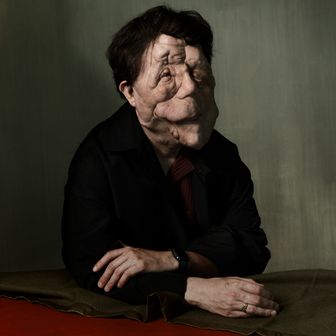 Adam Pearson Is No Wallflower
Adam Pearson Is No Wallflower -
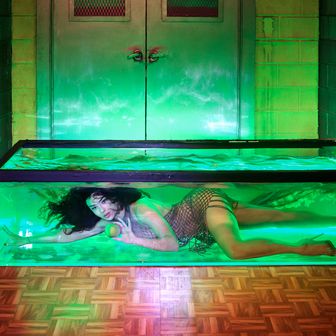 Charli XCX Is Too Brat to Fail
Charli XCX Is Too Brat to Fail -
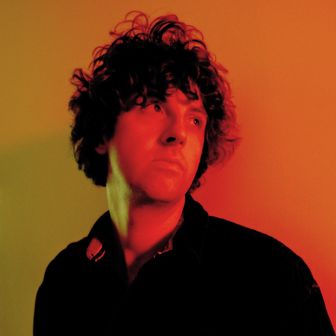 Jamie xx Didn’t Ruin Club Music
Jamie xx Didn’t Ruin Club Music -
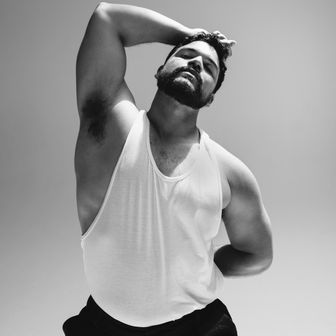 Josh Rivera Takes the Lead in American Sports Story
Josh Rivera Takes the Lead in American Sports Story -
 10 Anime We Can’t Wait to Watch This Fall
10 Anime We Can’t Wait to Watch This Fall -
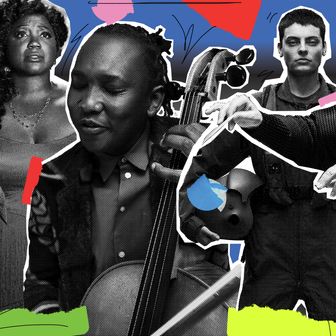 30 Classical-Music Performances to Hear This Fall
30 Classical-Music Performances to Hear This Fall -
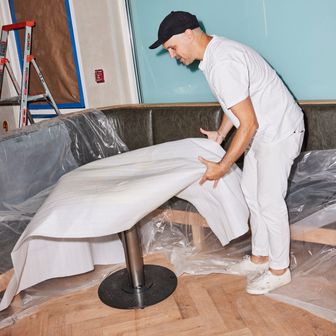 Here Are All the Fall Openings We’re Watching
Here Are All the Fall Openings We’re Watching -
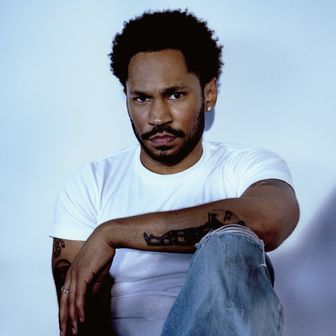 Kaytranada Owns His Influence
Kaytranada Owns His Influence -
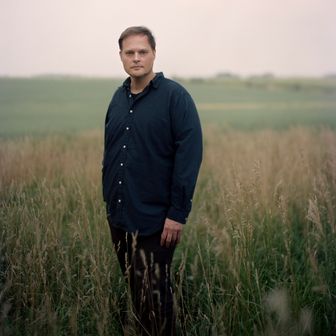 Garth Greenwell’s Grand Romance
Garth Greenwell’s Grand Romance -
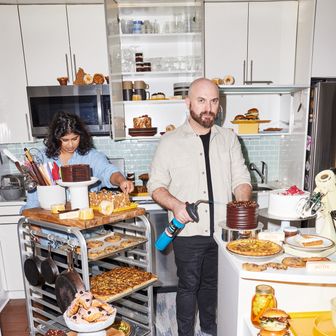 Hani’s Is a Bakery That Celebrates Cake
Hani’s Is a Bakery That Celebrates Cake
-
 Adam Pearson Is No Wallflower
Adam Pearson Is No Wallflower -
 Charli XCX Is Too Brat to Fail
Charli XCX Is Too Brat to Fail -
 Jamie xx Didn’t Ruin Club Music
Jamie xx Didn’t Ruin Club Music -
 Josh Rivera Takes the Lead in American Sports Story
Josh Rivera Takes the Lead in American Sports Story -
 10 Anime We Can’t Wait to Watch This Fall
10 Anime We Can’t Wait to Watch This Fall -
 30 Classical-Music Performances to Hear This Fall
30 Classical-Music Performances to Hear This Fall -
 Here Are All the Fall Openings We’re Watching
Here Are All the Fall Openings We’re Watching -
 Kaytranada Owns His Influence
Kaytranada Owns His Influence -
 Garth Greenwell’s Grand Romance
Garth Greenwell’s Grand Romance -
 Hani’s Is a Bakery That Celebrates Cake
Hani’s Is a Bakery That Celebrates Cake
The original version of Sunset Blvd., which Webber developed with librettists Don Black and Christopher Hampton in the early 1990s, premiered with director Trevor Nunn on the West End in 1993. It was a sumptuous affair, high on production values—a giant staircase and vintage car both appeared onstage. In a way, the show is an unlikely fit for Lloyd’s more minimal approach. The director has made a name for himself with deconstructed takes on classics that often hang around a choice bit of star casting. He directed a version of Cyrano that managed to be both raging and tender with James McAvoy, performing without the traditional prosthetic nose that tends to define the character. He did A Doll’s House with Jessica Chastain and a Romeo and Juliet with Tom Holland. In the summer of 2019, he directed an open-air version of Andrew Lloyd Webber’s Evita at London’s Regent’s Park Theater without the traditional iconography of the musical — no white Dior dress, no V-shaped arm pose at a balcony — that earned Lloyd the trust of the composer and made him eager to reconstruct another of Webber’s works.
After Scherzinger agreed to do Sunset, she had months’ worth of Zoom calls with Jamie Lloyd, during which she opened up about her personal life and career. In the style of European director-driven Regietheater, he often has Scherzinger perform on a bare stage while crew members film the action and project close-ups of her visage onto the wall behind her. “Jamie took me out of my comfort zone in every way,” she tells me. She wanted to wear a wig; there’s no wig. She wanted a turban; this Norma doesn’t wear one. She wanted shoes; this Norma is barefoot. She asked Lloyd to film the “good” side of her face; he took the cameras to the other side. For his part, Lloyd insists that “there is no bad side to Nicole Scherzinger” but acknowledges that he was interested in pushing her to a performance in which she was unself-conscious of how she might appear onstage. When they first met, she arrived with the full armament of a pop star—an assistant and a manager, a giant hat, sunglasses—and he wasn’t sure if he would be able to get an honest performance out of her. But he quickly realized she was ready to be pushed. He describes Scherzinger possessing a dedicated work ethic in rehearsals, honed from years of touring. In rehearsals, Lloyd would sometimes turn off the lights and ask Scherzinger to go to the furthest possible extent of Norma’s depths. After a take like that, “she would say to me, ‘How did you know I would be able to do that?’” he says.
When we talk, Scherzinger and Lloyd are in the midst of preparing for their first Broadway rehearsals of Sunset and are trying not to take the success of the West End run for granted. American and British tastes do differ. Last season’s Eddie Redmayne–led revival of Cabaret arrived in New York hot off raves from London and received largely mixed-to-negative reviews from American critics. Scherzinger is entering a Broadway season that’s set to be full of starry lead-actress performances, not least of all a revival of Gypsy led by Audra McDonald. She is anxious to be well received. She went to the Tonys for the first time this past June to perform “What I Did for Love” from Chorus Line, a song she’d sung at summer stock theater as a teenager. A few days before, she gave her first true performance on a Broadway stage alongside Ben Platt during his residency at the Palace Theatre, singing “Let Me Be Your Star” from the cult TV series Smash. “I’m a lyrics girl,” she says. “All I asked was that I could sing the line ‘The future is here with me.’”
In a video of the performance, Scherzinger lays into that line with the kind of gale-force strength that has defined her career. Her voice, through all the ups and downs, has not failed her. She treats the act of singing with almost a religious devotion. Consider one of her big Sunset solos, “With One Look,” an Act One aria in which Norma reminisces about her silent-film stardom. In a recording of her performance, Scherzinger’s voice rises with classical shapeliness into its upper register and then arches, like the back of a ballroom dancer, as it falls to roiling depths. “For the first time in my life,” she tells me, “I’m not moving much onstage.” She stands there, and as she sings, she pictures herself drawing all the power she can from the sun and the universe, homing it into her body like a laser. “I’m trying to have it shoot out of my chest and hands when I sing,” she says. The goal with Sunset is to attack with every bit of technique in her arsenal, to make sure she has thought through every detail — then, as she pushes even further, to break past that and let the emotion take over. The expression becomes so pressurized it’s uncontainable. She hits a climactic moment when Norma announces, “I’ll be back / Where I was born to be / With one look / I’ll be meeeeee.” “And then it just releases,” she says. “Maybe the note’s not perfect, or half the time I’m fighting back tears.” But she shows her teeth: “When you reveal your insides, when your heart goes inside out, it hopefully grabs the soul.”


